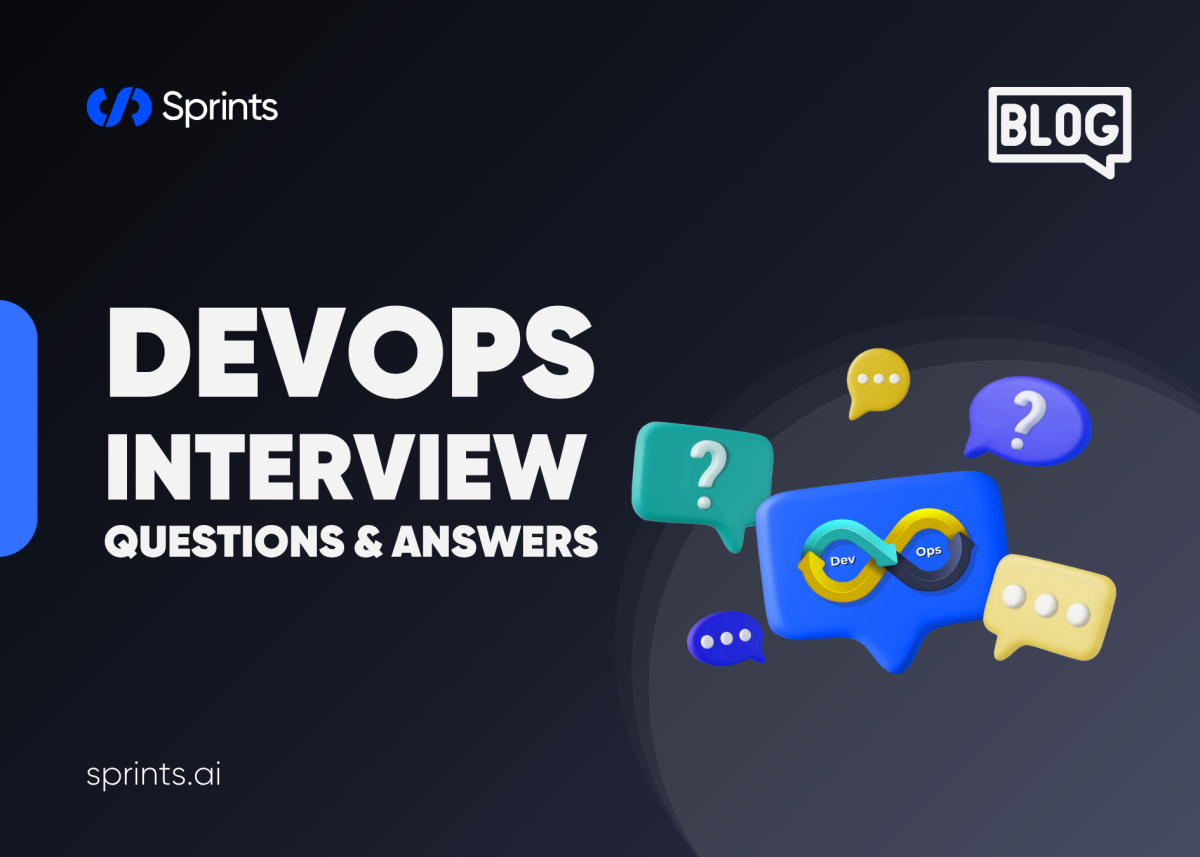
DevOps is rapidly transforming how companies build, deploy, and maintain software. As demand for skilled DevOps engineers rises, your DevOps interview becomes essential. Whether you're a beginner preparing for your first role or an experienced professional aiming higher, this comprehensive guide to DevOps interview questions and answers will help you impress your interviewers.
Let’s dive into crucial DevOps questions, practical answers, and preparation tips to help you succeed.
What is DevOps? (DevOps Basic Concepts)
"DevOps" is a practice that blends development (Dev) and operations (Ops), focusing on improving collaboration between these two traditionally separate teams.
Key aspects of DevOps include:
- Collaboration and communication
- Automation of software development processes
- Continuous integration and continuous delivery (CI/CD)
- Faster, more reliable deployments
Example Answer:
DevOps is a methodology aimed at breaking down barriers between developers and operations staff, enabling rapid and reliable software releases. It leverages automation tools like Jenkins, Docker, and Kubernetes to streamline workflows and enhance collaboration.
Why is DevOps Important?
Companies adopt DevOps to speed up software releases, increase reliability, and improve overall product quality.
Main benefits of DevOps:
- Faster deployment cycles
- Reduced error rates
- Increased collaboration
- Improved customer satisfaction
Popular DevOps Tools (DevOps Tools Interview Questions)
In your DevOps interview, expect questions about specific tools like Jenkins, Docker, Kubernetes, and Ansible.
Jenkins
Jenkins is a leading CI/CD tool used to automate software build, test, and deployment processes.
Docker
Docker helps package applications into containers, making them portable and easy to manage across various environments.
Kubernetes
Kubernetes orchestrates and manages containerized applications, ensuring they're scalable, reliable, and easy to maintain.
Ansible
Ansible automates tasks related to software provisioning, configuration management, and deployment, greatly simplifying IT infrastructure management.
Example Question: How do Docker and Kubernetes Work Together?
Answer:
Docker creates standardized, portable application containers, while Kubernetes manages these containers, handling scaling, deployment, and resource optimization across large clusters.
Common DevOps Interview Questions and Answers
Let’s explore common technical and behavioral questions often asked during DevOps interviews.
Technical DevOps Interview Questions
1. What is Infrastructure as Code (IaC)?
IaC refers to managing infrastructure through code, making system setups reproducible and scalable.
Example Answer:
Infrastructure as Code involves writing scripts and configuration files that automatically provision and configure infrastructure resources, using tools like Terraform or Ansible, thus ensuring consistency and reducing manual errors.
2. Can You Explain Continuous Integration (CI) and Continuous Delivery (CD)?
CI is frequently merging code changes into a shared repository, while CD automates the deployment process.
Example Answer:
Continuous Integration (CI) helps quickly detect integration errors, improving software quality. Continuous Delivery (CD) automates deploying this integrated code, significantly speeding up release cycles and ensuring stable releases.
Behavioral DevOps Interview Questions
These questions assess how well you'll collaborate and communicate within teams.
1. Describe a Situation Where You Managed a Deployment Failure
Interviewers want to understand your troubleshooting and crisis-management skills.
Example Answer:
Once, after a faulty deployment caused an outage, I quickly identified the issue, rolled back the deployment, communicated clearly with stakeholders, and implemented automated rollback features to prevent similar future occurrences.
2. How Do You Handle Conflicts Between Development and Operations Teams?
This question evaluates your collaborative skills in resolving team conflicts.
Example Answer:
I emphasize open communication, facilitating regular meetings between teams to understand each other's workflows and challenges, thus building shared processes and reducing friction.
DevOps Interview Preparation Tips
Prepare effectively for your interview with these practical tips:
- Understand the Job Requirements: Align your preparation with the job's specific demands.
- Refresh Core DevOps Concepts: Review essential topics, from automation and CI/CD to containerization and monitoring.
- Practice with Hands-on Labs: Gain practical experience using popular DevOps tools.
- Use the STAR Method: Clearly structure your answers (Situation, Task, Action, Result) for behavioral questions.
- Stay Updated: Keep up-to-date with industry trends and emerging tools.
Advanced DevOps Interview Questions and Answers
Prepare yourself for advanced questions, especially around DevSecOps and monitoring.
What is DevSecOps and Why is it Important? (DevSecOps Interview Questions)
DevSecOps integrates security directly into the DevOps workflow, ensuring security concerns are addressed early and continuously.
Example Answer:
DevSecOps integrates security into every stage of software development, reducing vulnerabilities and improving compliance through automated security checks, continuous monitoring, and regular security audits.
What Monitoring Tools Have You Used? (DevOps Monitoring Tools Interview Questions)
Interviewers may ask about your experience with tools like Prometheus, Grafana, ELK stack, and Nagios.
Example Answer:
I've extensively used Prometheus for metrics collection, Grafana for real-time dashboards, and ELK stack for centralized log analysis, greatly enhancing our ability to troubleshoot and maintain system stability.
Frequently Asked DevOps Interview Questions (Quick Reference)
Here's a quick checklist of common questions you should be ready to answer:
- What are the core principles of DevOps?
- Explain how Jenkins helps with CI/CD.
- How does Docker simplify software delivery?
- What is Kubernetes, and why is it widely adopted?
- Describe a challenge you've solved using DevOps practices.
- How do you ensure security in a DevOps pipeline?
Conclusion: Ready for Your DevOps Interview?
Mastering these common and advanced DevOps interview questions and answers will help you confidently approach your interview. Remember, clearly articulating your experience with DevOps practices, tools, and teamwork is crucial.



